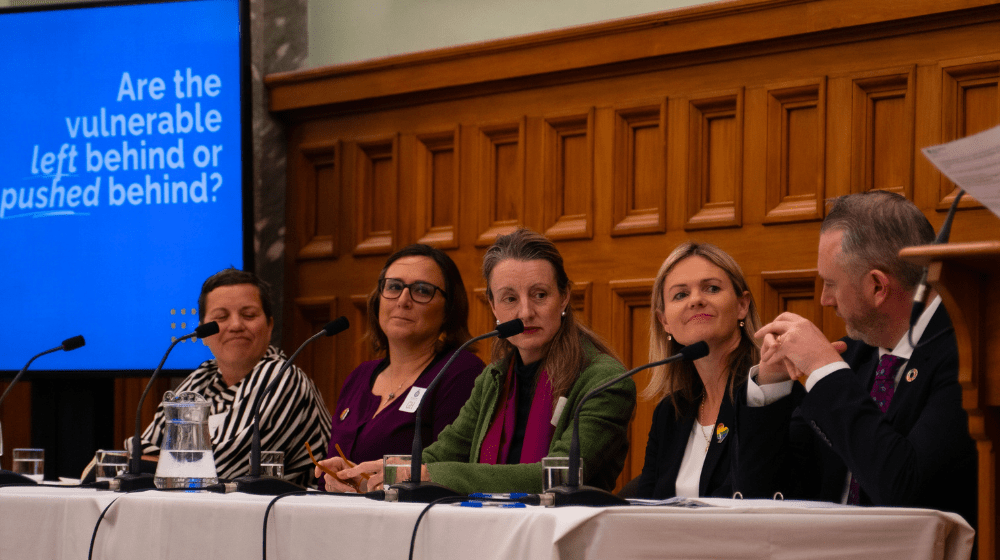Wellington/Bangkok, 17 September 2024: Despite 30 years of significant global progress, millions of women and girls in Asia and the Pacific face severe sexual and reproductive health risks due to racism, sexism, and other forms of discrimination, reveals this year’s UNFPA State of the World Population report.
In Asia-Pacific alone, more than six women die every hour from preventable causes related to pregnancy and childbirth. Less than one in four sexually active unmarried young people use contraception. Additionally, on average, half of the women from the Pacific Islands have experienced physical or sexual violence by an intimate partner at least once in their lifetime.
Presenting the report findings at Parliament in Wellington, New Zealand, today, Mr. Pio Smith, UNFPA Regional Director for Asia and the Pacific, emphasized the urgent need for action. “We must redouble our efforts to achieve comprehensive, universal, and inclusive healthcare, grounded in human rights and modern science,” he stated.
“Comprehensive sexuality education, ending gender-based violence, promoting gender equality, and ensuring every woman has access to contraception — these steps would contribute trillions of dollars to the global economy and unleash gains in education, productivity, workforce participation, and human well-being.”
Jackie Edmond, Chief Executive of Sexual Wellbeing Aotearoa underscored the importance of regional partnerships. “Sexual Wellbeing Aotearoa has strong ties and partnerships in the Pacific. We work every day with local colleagues and partner organizations to develop and implement projects focused on addressing the sexual and reproductive health challenges in Pacific countries,” she said.
“And, as the report details in stark relief, the challenges across the Pacific are immense. Kiribati, for example, has some of the highest needs for sexual and reproductive health services in the Pacific. Global support from agencies like UNFPA are critical to on-the-ground improvement,” she added.
Catherine Wedd, MP for Tukituki and Chair of the New Zealand Parliamentarians Group on Population and Development (NZPPD), underlined New Zealand’s ongoing commitments. “As we look back on progress over the last 30 years, New Zealand has continued to make progress in improving sexual and reproductive rights, including cervical self-testing, free period products in schools, introducing the childcare tax rebate and legalizing abortion,” she said.
“However, there continue to be persistent inequities in outcomes that we remain committed to addressing. New Zealand also continues to be an ally for the Pacific, committing NZ $30 million in 2022 to improve care and access to contraceptives, family planning, and other sexual and reproductive health services across the Pacific over five years.”
The report "Interwoven Lives, Threads of Hope: Ending Inequalities in Sexual and Reproductive Health and Rights" exposes a troubling reality that healthcare advancements have largely benefited wealthier women and those from ethnic groups with better access to services.
Women and girls with disabilities, migrants and refugees, ethnic minorities, LGBTQIA+ individuals, people living with HIV, and those from other marginalized communities face exacerbated sexual and reproductive health risks and inequitable access to care. Their vulnerability is further intensified by climate change, humanitarian crises, and mass migration, which disproportionately affect women.
New Zealand has been a long-standing supporter of UNFPA, particularly during humanitarian crises, including in the response in Cox’s Bazar for Rohingya refugees, as well as in Afghanistan.
Additionally, New Zealand has joined the global UNFPA supplies partnership to support the Pacific Plan, providing essential reproductive health commodities across 14 Pacific Island countries. New Zealand has provided NZ $2 million for 2023-2024.
Today's event in Wellington was hosted by the NZPPD Chair Catherine Wedd and supported by Sexual Wellbeing Aotearoa.


